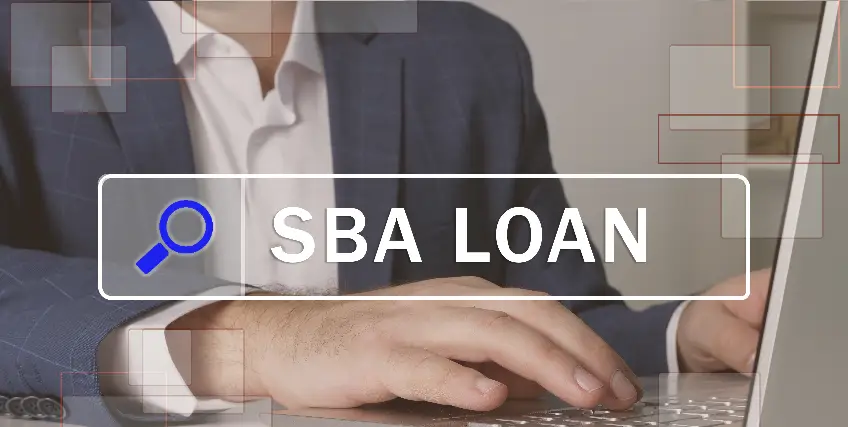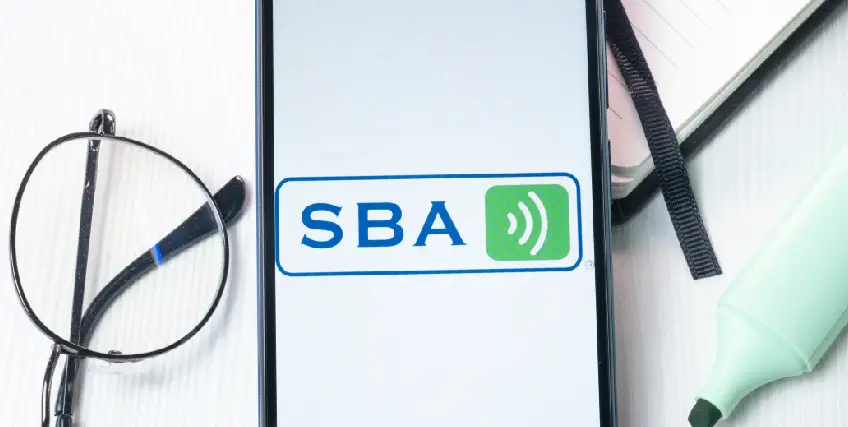SBA Loans
Learn About Small Business Loans Backed by the US Government.
Looking for Business Financing?
Apply now for flexible business financing. Biz2Credit offers term loans, revenue-based financing, lines of credit, and commercial real estate loans to qualified businesses.
Set up a Biz2Credit account and apply for business financing.
Strong financing is the lifeblood of any business. It sustains product development, boosts marketing efforts and helps the company steer clear of any crisis. Without a solid financial support, not even the best of the business can flourish.
For most US entrepreneurs looking for business financing, SBA loans remain the gold standard funding solution. Backed by the U.S. Small Business Administration (SBA), these loans continue to be among the most popular funding solutions. Offering long repayment terms, competitive SBA loan interest rates, and support for variety of business needs, Small Business Administration loans serve as a keystone for viable business growth and recovery. However, it can be challenging to navigate the SBA lending process, and many small businesses still fail to qualify for these highly sought-after loans.
Now, with new 2025 regulation updates, it’s essential for business owners to understand the SBA loan process, loan terms and how to apply for an SBA loan.
What are SBA Loans?
SBA loans are a type of small business loan solutions that are partly guaranteed by the Small Business Administration (SBA). This enables lenders to provide affordable terms and reduces borrower risk. It is important to keep in mind the SBA does not lend directly. It partners with approved financial institutions to provide low interest rates, longer loan terms and lower down payments. From business expansion to cash flow management to equipment purchases, SBA loans offer tailored options for every business owner. These funding options are particularly useful for new businesses or startups as well as underserved markets looking for affordable financing options.
How Do SBA Loans Work?
To qualify for an SBA loan, businesses work with an approved lender who will accept the SBA loan application. The lender evaluates eligibility for the loan based on their own underwriting standards. Then they forward the application to the SBA for approval of the government guarantee.
Once approved, borrowers receive funds with longer repayment timelines and affordable SBA loan terms. Most loans require personal guarantees, and some require collateral, depending on the type of loan and amount. Repayments are typically made through fixed monthly payments based on the loan amount, interest rates, and duration.
Eligibility for SBA Loans
Most businesses can qualify for financial support backed by the SBA, but there are exceptions. To be eligible, a business must:
- Be actively operating and for-profit
- Be physically located in the U.S.
- Meet the SBA’s size standards
- Not fall into an ineligible category
- Be unable to secure credit elsewhere on reasonable terms
- Be creditworthy and show the ability to repay the loan
Businesses will also need to meet the lender’s unique underwriting policies and standards. That means that even if your business meets all the conditions above, you still need to find a lender that will underwrite your application and approve you for the loan.
How SBA Loan Interest Rates Work
SBA loan interest rates are determined by a combination of the base rate (such as the Prime Rate, LIBOR, or Optional Peg Rate) plus an allowable spread set by the SBA. For variable-rate loans, the spread is capped and varies depending on the loan amount and term. For fixed-rate loans like the SBA 504 loan, rates are determined at the time of funding and remain constant for the life of the loan.
As of 2025, SBA 7a loan rates typically fall between Prime + 2.25% to 4.75%, depending on repayment period and size of the loan. SBA 504 loan rates are fixed and usually lower due to their longer terms and collateral-backed structure. The SBA publishes allowable interest rates and updates frequently on its official site sba.gov and in the Code of Federal Regulations. These guidelines ensure lenders offer fair, transparent, and competitive financing terms for small businesses.
The maximum interest rates for variable 7(a) loans are as follows:
| Loan Amount | Maximum Rate |
|---|---|
| $50,000 or less | Base rate plus 6.5% |
| $50,001 to $250,000 | Base rate plus 6.0% |
| $250,001 to $350,000 | Base rate plus 4.5% |
| Greater than $350,000 | Base rate plus 3.0% |
*valid as of 25th April 2025
Please note that lenders and borrowers can negotiate the interest rate on most SBA loans, but it may not exceed the SBA maximum.
Types of SBA Loans
The Small Business Administration (SBA) offers diverse loan programs to meet different business needs, including expansion, recovery, international trade, and more.
01 7(a) Loans
The 7(a) loan program is the flagship offering of the Small Business Administration, tailored to meet the general needs of small businesses. This type of SBA loan can be used for nearly any legitimate business purpose including expanding operations, buying equipment, acquiring another business, or refinancing debt. The program provides access to larger loan amounts with favorable SBA 7a loan rates, making it a solid choice for businesses that may not qualify for conventional financing. Its flexibility, combined with longer repayment terms and reduced down payments, makes it a go-to option for borrowers seeking an SBA business loan.
- Ideal for: General business needs like working capital or purchasing real estate.
- Uses: Purchase inventory, refinance debt, invest in business acquisition, or acquire equipment.
- Interest Rates: Variable; based on SBA 7a loan rates.
- Repayment Terms: Up to 10 years for working capital; 25 years for commercial real estate.
02 SBA Express Loan
When it comes to speed and convenience, then SBA express loan is the funding solution to go for. Businesses looking to access cash quickly can opt for this loan. It can be used for various purposes such as short-term investments, emergency purchases and more. However, it is best to keep in mind that SBA interest rates here are marginally higher than traditional 7(a) loans, mainly due to rapid processing. Borrowers can get funds up to $500,000, and the SBA guarantees up to 50% of the loan amount. Overall, a good choice for urgent financing options.
- Ideal for: Time-sensitive funding needs.
- Uses: Line of credit, short-term cash needs, or unexpected expenses.
- Interest Rates: Slightly higher SBA loan rates.
- Repayment Terms: Up to 7 years.
03 7(a) Working Capital Pilot Program
When it comes to addressing urgent working capital needs of small businesses with easy access to funds, 7(a) working capital pilot program is a good fit. However, unlike other SBA loans, this is a very limited program. Moreover, not many lenders offer this loan today since it is still a pilot program. Hence, it might be difficult to apply for this SBA loan program at the present time (April 2025).
Compared to other traditional loans, this SBA loan offers quicker approval and disbursement of funds. This funding option is ideal for businesses with fluctuating operational costs. Entrepreneurs can use the 7(a) WCP loan to manage inventory, payroll, and other daily costs. With competitive SBA loan rates and loan terms similar to those of the main 7(a) program, it is a fitting choice for those who need quick funds without going through complex collateral arrangements. Thus, it is ideal for those seeking an SBA small business loan.
- Ideal for: Businesses with short-term operational expenses.
- Uses: Payroll, vendor payments, supplies, and minor renovations.
- Interest Rates: Rates are similar to standard SBA 7a loan rates.
- Repayment Terms: Generally, under 10 years.
04 504 Loans
504 loans are designed to provide long-term, fixed-rate financing for major fixed assets. This includes commercial real estate, large machinery, or renovations that enhance your operational capabilities. Businesses can benefit from fixed SBA 504 loan rates, long loan terms (up to 25 years), and lower down payments. These SBA loans typically involve three parties - the borrower, a Certified Development Company (CDC), and a traditional lender. The SBA backs the CDC’s portion, providing added security. It's an excellent fit for businesses with solid financials planning to invest in long-term infrastructure growth. These are among the best Small Business Administration loan rates available. And since the SBA 504 rate is typically fixed at the time of funding, it makes for a good choice if you are looking for a stable and predictable financing option for long-term asset investments.
- Ideal for: Commercial real estate and major equipment investments.
- Uses: Purchase buildings, renovate property, or refinance eligible assets.
- Interest Rates: Set SBA 504 loan rates, often fixed.
- Repayment Terms: Up to 25 years.
05 Microloans
Microloans provide smaller loan amounts, typically up to $50,000, ideal for startups and businesses with modest capital needs. These SBA loans are delivered through local nonprofit lenders and community organizations, offering support beyond just funding like mentoring and training. Funds can be used for inventory, equipment, business bank fees, and working capital. Interest rates range from 8%–13%, and repayment terms extend up to 6 years. These loans are perfect for first-time borrowers or underserved entrepreneurs seeking new business loan options with community support.
- Ideal for: Startups and small-scale entrepreneurs.
- Uses: Inventory, supplies, business bank fees, or equipment.
- Interest Rates: 8%–13%, depending on lender.
- Repayment Terms: Up to 7 years.
06 SBA Disaster Loan
SBA disaster loans are designed to support businesses affected by federally declared disasters, offering the funds needed to recover, rebuild, and get back to business. These SBA loans cover both economic injury and physical damages, making them important in times of crisis. Funds can be used to repair building, replace or restore equipment, recover cash flow and even pay debts.
To help businesses recover without financial strainr, this financing option comes with low SBA loan interest rates, considerably longer repayment periods (up to 30 years) and are directly handled by the SBA. Unlike other business financing options, these loans are available not only to small businesses, but also to nonprofits, homeowners, and renters.
- Who can apply: Small businesses, nonprofits, homeowners, and renters in impacted zones.
- How to use: Repair damaged property, restore inventory, replace machinery, or maintain cash flow. Funds may also be used for monthly payments on fixed debts.
Types of SBA Disaster Loans
Economic Injury Disaster Loans (EIDL)
These loans are geared toward covering operational losses resulting from a declared disaster. They provide access to working capital to help businesses stay afloat while revenues are down. Funds can be used for rent, utilities, payroll, and other routine costs. EIDLs carry low SBA loan rates and generous loan terms, making them ideal for businesses in sectors affected by supply chain disruptions or forced closures.
Physical Damage Loans
These loans are intended for the repair or replacement of assets like buildings, equipment, and inventory that have been physically damaged. These SBA loans help cover rebuilding costs after hurricanes, fires, or other disasters. They may include improvements to mitigate future damage. Often, the terms on SBA loan under this program are more favorable than conventional loans, providing a critical resource for disaster recovery.
Military Reservist Loans
This type of SBA loan supports businesses when a key employee is called into active military duty. These loans offer working capital to cover necessary operating expenses the business can no longer manage. Designed as a bridge during personnel gaps, they help sustain continuity in business operations. Military reservist loans are a special form of SBA financing rates available during national emergencies.
Other SBA Programs
Export Loans
SBA export loans are created to help businesses engaged in exporting goods and products. The funding can help in activities like expanding production for export, funding foreign receivables, and supporting overseas marketing. This type of SBA loans has flexible loan terms and competitive SBA loan rates. So, if any business has plans to expand internationally, then SBA export loans should be their top funding solution for financing.
Veteran Advantage
As part of the broader commitment to supporting people in the military and their families, this SBA program has been specifically tailored for veteran entrepreneurs. Offering lower guaranty fees and quick processing, these loans provide veterans with funding for equipment, inventory, or business acquisition. These loans also come with attractive interest rates and accessible loan amount thresholds, making them a good choice for veteran entrepreneurs trying to build businesses after serving their nation.
CAPLines
CAPLines offer revolving or fixed line of credit options to meet cyclical or short-term needs. Businesses can choose from four types: Seasonal, Contract, Builders, and Working Capital. With flexible repayment structures, this SBA loan category addresses varying cash flow needs throughout the year.
International Trade Loans
These loans are designed for businesses affected by import competition or planning to expand into global markets. These loans offer higher loan amounts up to $5 million and can be used for facility upgrades, equipment, or working capital. Coupled with favorable SBA loan terms, they encourage global competitiveness.
Community Advantage Loans
This pilot program serves small businesses in underserved areas. It offers mission-driven lenders the ability to issue loans up to $350,000. Borrowers benefit from guidance, training, and easier access to funds, with terms designed to strengthen community economic development.
How to Apply for an SBA Loan
Applying for an SBA loan is similar to applying for a regular term loan.
Determine Your Eligibility
First off, are you eligible for an SBA loan? While a considerable number of small businesses would qualify for an SBA loan, but there are a number of ineligible business types that will not make the cut.Businesses also have to consider that lenders have their own qualification criteria on top of SBA criteria, and they will need to qualify through those conditions as well. So you will need to review those criteria carefully before you go forward with your application.
Choose the Type of SBA Loan
The standard (7)a is the most common loan type, but if you need money fast, don’t need a huge loan, or operate an export business, a different loan may be better.
Find an SBA Lender
There are thousands of lenders that offer SBA loans nationwide. But not all lenders will offer loans to all types of small businesses. The SBA has a Lender Match tool on their website to help you find one that works for you. This tool connects eligible businesses to SBA’s network of approved banks and private lenders. You can use this to find out lenders that will qualify your business based on their rules.
Prepare and Submit Your Application
The SBA loan application is complex and will require extensive documentation of your business and your personal credit history. Give yourself at least a few days to complete the process.
If you’re feeling overwhelmed, your accounting professional can use the CPA Business Funding Portal to streamline the financing application process.
Await Approval
Depending on the loan type and the lender, it could take up to 90 days to get approved for your SBA loan. But keep in mind that every lender works at different speeds. The SBA loan application process is known to be a very long one. There tends to be a lot of back and forth between the applicant and the lender about documentation and clarifications. A lender might seek additional documentation for your business, or you might need to provide copies of old tax returns or financial statements. It can be a lot for each business owner to manage, while still running their business day to day. So, it is best to be patient and try to get all the documents ready in advance. Ask your lender what they need, or check out helpful resources online that can give you a hint ahead of time.
Benefits and Drawbacks of SBA Loans
Benefits |
Drawbacks |
01Low SBA loan interest rates |
01Lengthy application and approval process |
02Long repayment periods (up to 25 years for some SBA loan types) |
02Strict eligibility and documentation requirements which vary by lender |
03Lower down payments compared to conventional loans |
03Personal guarantee and collateral often required |
04Options available for refinancing or business acquisition |
04Can be slow depending on the lender |
Recent Changes to SBA Loans
In 2024–2025, the SBA rolled out updates to simplify loan access. Key changes include streamlined loan application processes, enhanced lender match tools, and updated eligibility for underserved businesses. The current SBA loan rates have remained competitive amid economic shifts, with digital enhancements reducing approval times for some programs like the SBA Express and Microloans.
Alternatives to SBA Loans
It is true that SBA loans offer favorable loan terms, low interest rates, and strong borrower protections. But they may not always be the fastest or easiest option to access capital. It is especially true for new businesses, those with low credit scores, or companies needing urgent funds. In these circumstances, it is pragmatic to explore alternative funding options that can help bridge the gap. A common approach is using a bridge loan or short-term financing solution, which can later be refinanced into an SBA loan once eligibility and documentation available for the business align with SBA lender expectations. This flexible strategy is often recommended for entrepreneurs who need immediate capital but aim to secure lower small business administration loan rates over time.
Short-Term Loans
These loans provide immediate capital for urgent business expenses such as covering payroll or fixing broken equipment. These loans usually have higher interest rates and shorter repayment periods. While not as affordable as SBA loans, they are easier to qualify for and quicker to fund.
Lines of Credit
Lines of credit offer flexible access to funding up to a set limit. Businesses only pay interest on what they use, making it ideal for managing seasonal dips or unexpected expenses. This is a smart alternative for maintaining cash flow without locking into long-term loan terms.
Business Credit Cards
Business credit cards are useful for covering smaller, everyday expenses. They often include rewards and benefits, like cashback or travel perks. While not ideal for large purchases, they help build business credit and provide a revolving credit line that’s always accessible.
Invoice Factoring
Unlike other loans, invoice factoring enables businesses to get immediate cash by selling their accounts receivable to a third party. This option helps businesses that face long payment cycles but need quick liquidity to manage operations.
Merchant Cash Advances
Merchant cash advances (MCA) provide fast funding based on projected credit card sales. The business can usually qualify based purely on the amount of revenue or credit card sales they are generating each month. Payments are automatically deducted as a percentage of daily transactions, offering convenience and the advantage of capping your repayment as a percentage of your future sales. However, like most of the alternative financing options, this speed and convenience is going to come at higher costs than SBA loans.
Articles on SBA Loans
How SBA Loan Companies Fuel the AI-Driven Small Business Boom in 2026
Large enterprises are not only the ones that are adopting Artificial Intelligence (AI),...
SBA Startup Loan: Which Program is Right for You? Microloan vs. 7(a) vs. Express
Many traditional banks are hesitant to lend to startups. This makes it difficult for many new business
SBA Loans for New Businesses: Pros, Cons, & Alternate Funding Options
When starting a new business, entrepreneurs need to not only have a good idea, but also have the
SBA Loan Rates by Program 7(a), 504, and Microloan Breakdown
For small business owners, securing business financing is one of the biggest steps. However, selecting the right loan program is even more critical.
Top 5 Best SBA Lenders in 2026 for Small Business Loans
There are many regional, national, and local banks that are SBA 7(a) lenders that comprise big names such as Chase
FAQs on SBA Loans
1. Who is eligible for an SBA loan?
To be eligible for an SBA loan, a business must be for-profit, located in the U.S., meet SBA size standards, and demonstrate a need for funding. Applicants must have invested equity and exhausted alternative financing options. Meeting SBA loan requirements like good credit and the ability to repay is essential. Certain industries, like gambling or real estate speculation, are ineligible under small business administration loan guidelines.
2. What is the easiest SBA loan to qualify for?
SBA loans are not easy to qualify for. A considerable number of small businesses fail the eligibility requirements set by the SBA and its approved lenders. But, amongst all the SBA loans, microloans can be comparatively easier to qualify for, especially for startups or businesses with limited financial history. These smaller SBA small business loans are provided by community-based nonprofit lenders and focus more on character and community impact than traditional credit metrics.
3. What is the downside of an SBA loan?
While SBA loans can offer favorable interest rates and loan terms, their biggest drawback is the lengthy approval process. Gathering paperwork, meeting strict SBA loan requirements, and waiting for approval can delay funding. Additionally, borrowers must often provide a personal guarantee and sometimes collateral. For those seeking fast funding, other financing options like lines of credit or short-term loans might be more suitable.
4. Is it hard to get an SBA loan right now?
Getting an SBA loan can be competitive, especially during periods of high demand or economic uncertainty. While programs have expanded access in 2025, meeting eligibility, providing financial documentation, and undergoing credit checks remain key hurdles. Startups and businesses with poor cash flow may face more scrutiny. Still, for those who meet SBA loan requirements, approval is realistic, especially with updated digital tools and lender match platforms.
5. How can I get an SBA loan for a startup with no history of profit?
Startups without a profit history can still qualify for certain SBA loans, like Microloans or the 7(a) program, especially if they have a strong business plan, personal credit, and collateral. These SBA business loan options often involve working with community lenders who evaluate potential, not just profits. While tougher than traditional paths, it’s possible for entrepreneurs to secure funding with careful planning and by aligning with SBA-supported financing options.
Frequent searches leading to this page
Term Loans are made by Itria Ventures LLC or Cross River Bank, Member FDIC. This is not a deposit product. California residents: Itria Ventures LLC is licensed by the Department of Financial Protection and Innovation. Loans are made or arranged pursuant to California Financing Law License # 60DBO-35839





